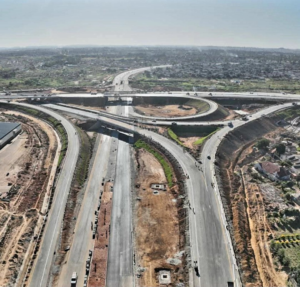ZIMBABWE’S POLITICAL PRIORITY PUZZLE: BY-ELECTIONS OVER BASIC SERVICES

As Zimbabwe braces for a new round of by-elections set for February 3, the nation is caught in a whirlwind of criticism over the government’s decision to funnel substantial public funds into the electoral process. This choice is especially contentious given the dire state of the country’s healthcare and infrastructure, sparking debates about the government’s priorities amid financial struggles.
The political landscape in Zimbabwe has long been dominated by a theatrical display of power, with the ruling party’s unwavering commitment to a one-party state agenda. This political stance has culminated in a series of decisions that have consistently placed political gains above essential public services. The upcoming by-elections are the latest episode in this saga, criticized widely as an unnecessary and extravagant expenditure of the country’s limited resources.
Critics are vocal in their opposition to these elections, viewing them as a glaring misallocation of funds. Zimbabwe’s economy, already under immense strain from various challenges, is ill-prepared to shoulder the hefty costs associated with these by-elections. Many argue that the funds would be better invested in revitalizing the nation’s faltering healthcare system and repairing its crumbling roads.
Hospitals throughout Zimbabwe paint a grim picture of neglect, with a stark absence of basic medical equipment and supplies. Healthcare workers face daunting conditions, often lacking the necessary support to provide adequate care. The deterioration of medical services has had a profound impact on the health and well-being of Zimbabweans, with preventable diseases on the rise due to this neglect.
Similarly, the country’s infrastructure, particularly its road network, is in dire need of attention. Roads riddled with potholes and lacking in maintenance not only pose a hazard to public safety but also severely impede economic activities, affecting the livelihoods of many, especially in rural communities.
The decision to proceed with the by-elections is perceived by many as a strategy to consolidate power, rather than a genuine attempt to foster democratic processes. This perception is reinforced by the ruling party’s history of leveraging elections to reinforce its dominance, often sidelining the broader needs and aspirations of the Zimbabwean populace.
As Zimbabwe gears up for the by-elections, a sense of frustration and disillusionment is palpable among its citizens. The widespread view is that these elections represent a misdirection of resources, diverting attention and funds from the critical challenges facing the nation. The call for a shift in government priorities is growing louder, with a clear demand for a focus on the welfare of the people and the nation, rather than on political ambitions. This moment in Zimbabwe’s history serves as a stark reminder of the urgent need for a reevaluation of political priorities, placing the pressing needs of its citizens at the forefront of the national agenda.




